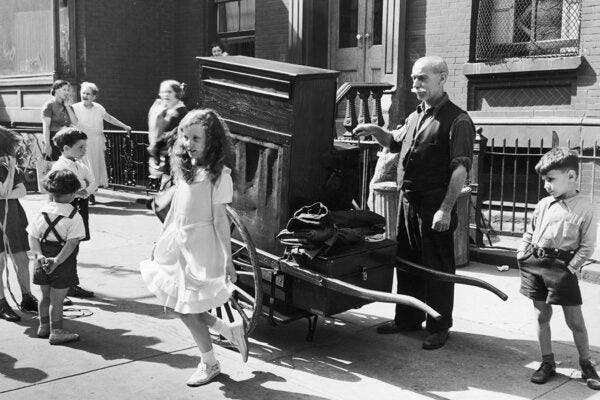Founding Murderers vs. Founding Fathers in Australia
Eighteen stone cairns were set up in 1926 to mark the route purportedly taken by Angus McMillan into Gunaikurnai Country in 1840. Should they remain?
Unforgettable Fire: The U-2 Incident
Reports on the May 1960 downing of an American U-2 spy plane over the Soviet Union offer a case study in Cold War posturing and misdirection.
A War on Street Music in NYC
In the New Deal era, New York City banned street musicians, classifying them as beggars. Some New Yorkers fought back.
The Power of Placemaking
Why the social, political, and emotional dimensions of public spaces matter, and how people themselves play a central role in creating them.
POPS Goes the City: Privately Owned Public Space and Its Discontents
Why is so much of the “public space” in cities actually private, and who benefits from it being that way?
Making Sense of The Nutcracker’s Libretto
Early audiences loved it, even as critics questioned its structure. Returning to the story helps illuminate what makes the ballet so strangely captivating.
The Radioactive Reindeer Problem
Cold War nuclear testing left troubling levels of Cesium-137 in caribou, prompting years of research into Arctic fallout and its risks to human health.
A Secret Cipher for the KKK
How did the Ku Klux Klan spread across the South? Part of its journey depended on a code for secret correspondence.
Landscape Architecture: A Reading List
A survey of classic and contemporary works revealing how cities, materials, power, and ecology shape landscapes—and how design can create healthier, more just places.
Designing for Community and Climate in Los Angeles
How can we design public spaces that help people thrive and connect—with each other and with their environment?









